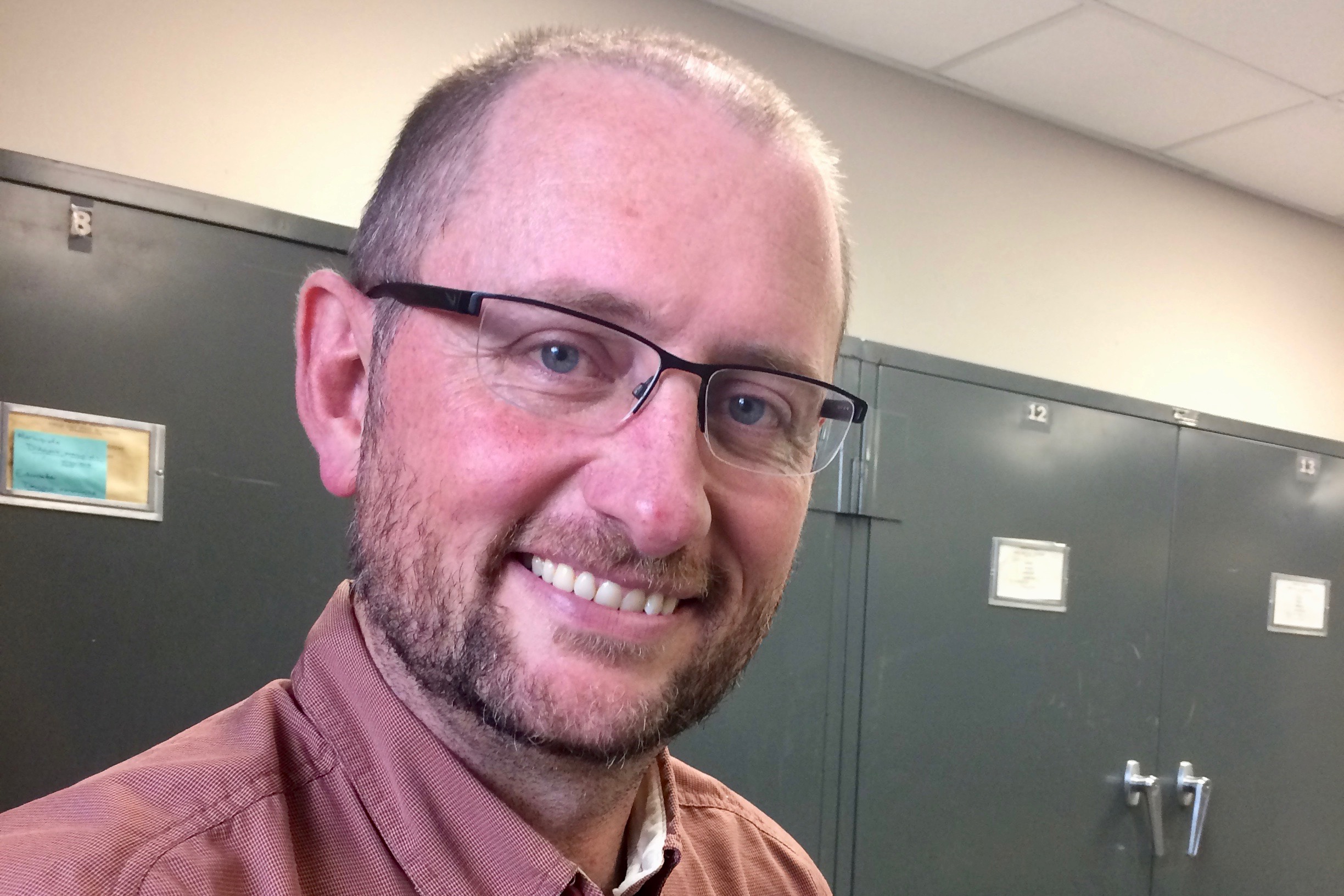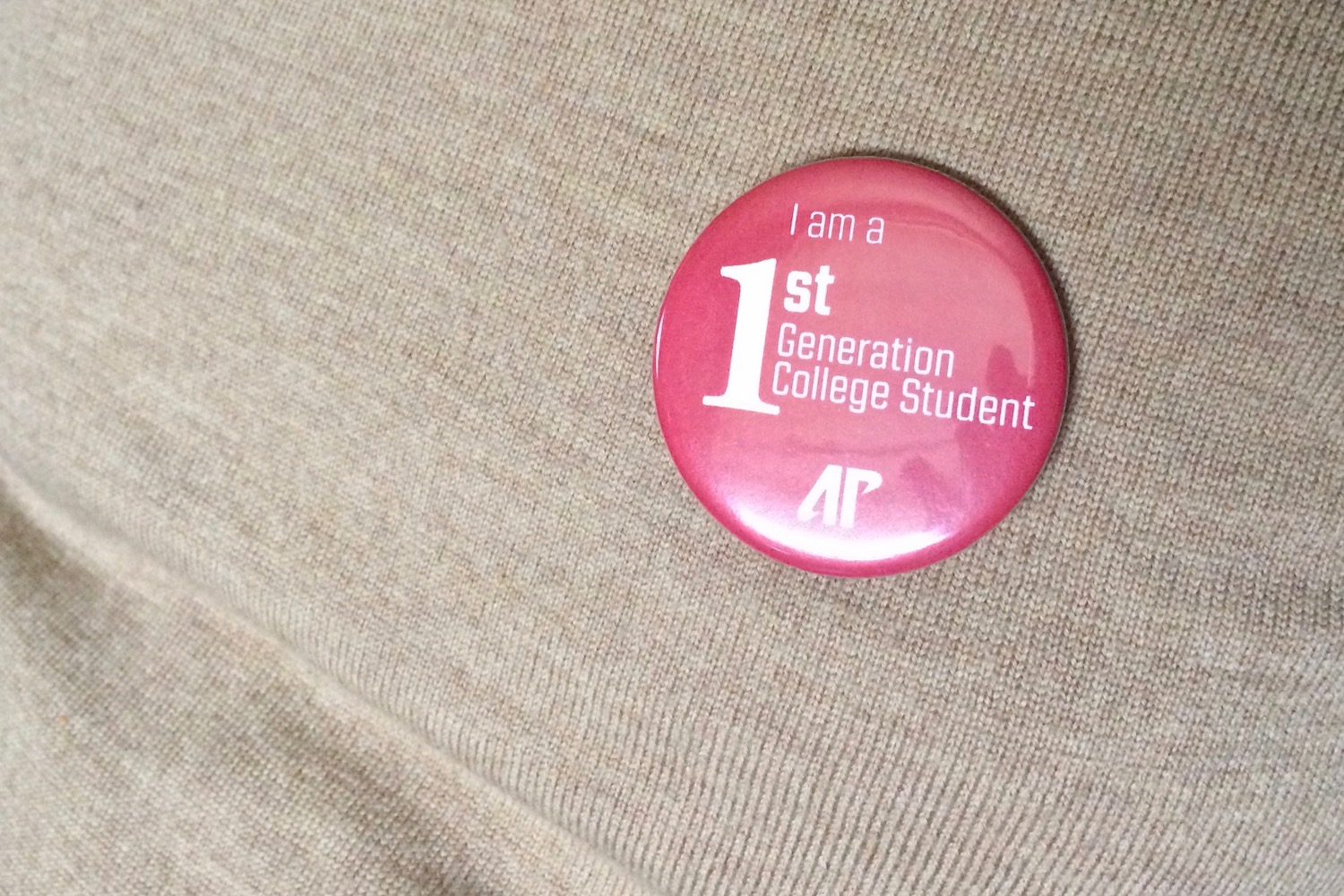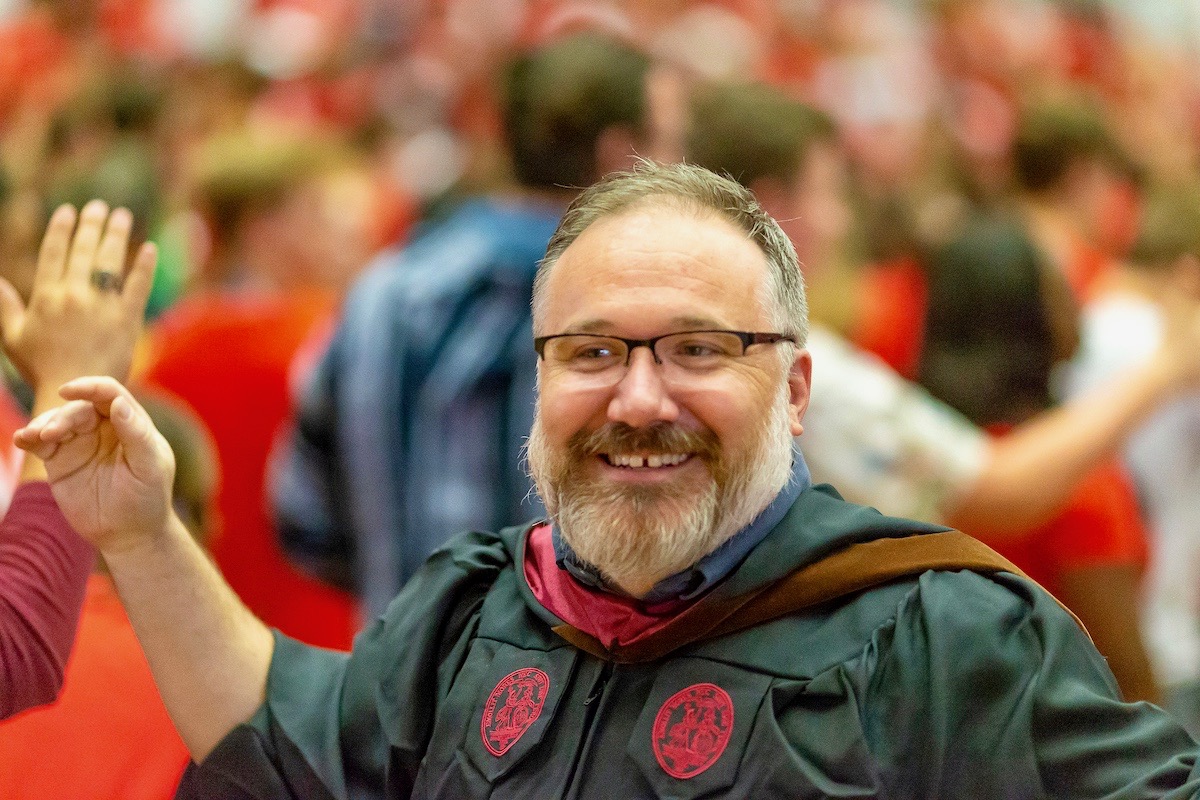CoAL, CoSTEM host First-Generation College Celebration events

(Posted Nov. 8, 2018)
When Dr. Jason Malaney reflects on his undergraduate years at Eastern New Mexico University, he realizes the impact being a first-generation college student had. He didn’t see the hurdles then. He sees them now.
“In hindsight I had no idea, no concept of what financial aid was, it wasn’t even part of my lexicon, how to get scholarships even,” the Austin Peay State University assistant biology professor, said. “How that works wasn’t even a piece of information for me. The pathway didn’t exist. I had to figure it all out.”
Obviously, Malaney figured it out. He earned his bachelor’s in 2000, his master’s in 2003 – both at Eastern New Mexico – and his Ph.D. in 2013 at the University of New Mexico.
But many first-generation students don’t succeed. According to the Higher Education Research Institute, 73 percent don’t complete a bachelor’s degree in four years. And U.S. Department of Education statistics show students with college-educated parents earn degrees more quickly.
First-generation students were the focus on Thursday, Nov. 8, at colleges across the nation during a First-Generation College Celebration day.
At Austin Peay, the College of Arts and Letters and the College of STEM participated on Thursday by handing out “I am a first-generation college student” pins and resource materials in the Mabel Larson Collaborative Learning Space in Harned Hall and in the Sundquist Science Complex lobby.
'WE'RE CHANGING FAMILIES' LIVES'

About 36 percent of the freshmen who entered APSU in the fall of 2017 – 639 of 1,755 enrollees – were first-generation college students.
“We have a lot of students who are first generation, what a thing to be proud of,” Arts and Letters Interim Dean Barry Jones said. “We’re changing families’ lives. It’s going to drastically change everybody in their family, the expectations for future generations.”
Of the more than 1,200 students in the College of Arts and Letters, 396 are first-generation college students, he said. Jones also was a first-generation college student.
“There’s something really unique about being a first-generation college student,” Jones said. “If your parents have gone to college, they know about it, you can get their advice. First-generation college students, just navigating financial aid, the bursar’s office, academic support, all of these things, it’s not intuitive.
“And just the first year, it’s so different from high school,” Jones said. “That first year, it’s tough.”
FIRST-GENERATION STUDENT TO PH.D.
Malaney remembers his first year: “It was definitely difficult that first year. I didn’t really know what to expect.
“I realized I didn’t understand all the pieces of college, but I didn’t realize it was because of my lack of knowledge about what the expectations were,” he said. “Fortunately, I was in an environment where I could ask folks, and they certainly were helpful.”
Malaney was a good student in high school, and his parents expected him to go to college.
“My parents definitely pushed hard,” he said. “I grew up in a small community of 600 or 700 people, and that definitely wasn’t the expectation for a lot of people.
“My dad went to Vietnam, and my mom jumped straight into the workforce,” he added, both typical paths for people from his town.
FIRST-GENERATION STUDENT TO COLLEGE DEAN

Jones said he had an advantage over typical first-generation students: He attended APSU at the same time as his mom, Diane Haynes.
“That helped me because she was working her way through too,” he said. “She was able to help.”
They both graduated in May 1995. He walked across the stage first. His father, Randy, earned bachelor’s and master’s degrees after retiring from the military.
“My parents both came from rural farmer families in Alabama,” Jones said. “College wasn’t really thought of as an option, and my dad was drafted into the military during Vietnam. He ended up making a career out of the military.
“We lived all over the world, to them it was expected that I was going to college,” he continued. “As they saw how the world worked, it never really was a question of whether or not I was going to college.”
SHARING THE FIRST-GENERATION EXPERIENCE
STEM Interim Dean Dr. Karen Meisch and Jones have been reaching out to faculty who were first-generation college students, asking them to share their experiences. And Jones is creating a door sign for faculty to signify “I was a first-generation student, and I’m happy to help.”
Malaney sees the value in faculty helping out year-round and at events such as those on Thursday.
“I think students sometimes feel isolated, thinking they are the only ones who are first-generation students, or they are the only ones who didn’t come from a background where their folks had been to college,” he said. “I think (events such as the First-Generation College Celebration) are a great way to build a community so folks can discuss the challenges they’ve had.”
TRIO PROGRAM HELPS FIRST-GENERATION STUDENTS
Austin Peay’s TRIO program provides academic services and support to low-income, under-represented and first-generation college students. Services include peer tutoring, academic counseling, grant aid, writing and research assistance, graduate school assistance and job search support.
Students, staff and faculty are welcome to visit the TRIO Student Support Services, the Educational Opportunity Center and Veterans Upward Bound in rooms 337, 333 and 325, respectively, of the Ellington Building.
“We would be more than happy to answer any questions about our program, guidelines and services TRIO programs offers,” Jennifer Placke, assistant director of TRIO Student Support Services, said.
- For more about TRIO Student Support Services, visit https://www.apsu.edu/sss/.
- For more about the Educational Opportunity Center, visit https://www.apsu.edu/eoc/.
- For more about Veterans Upward Bound, visit https://www.apsu.edu/vub/.
- To learn more about the 2018 First-Generation College Celebration, visit https://firstgen.naspa.org/events/2018-first-generation-college-celebration.